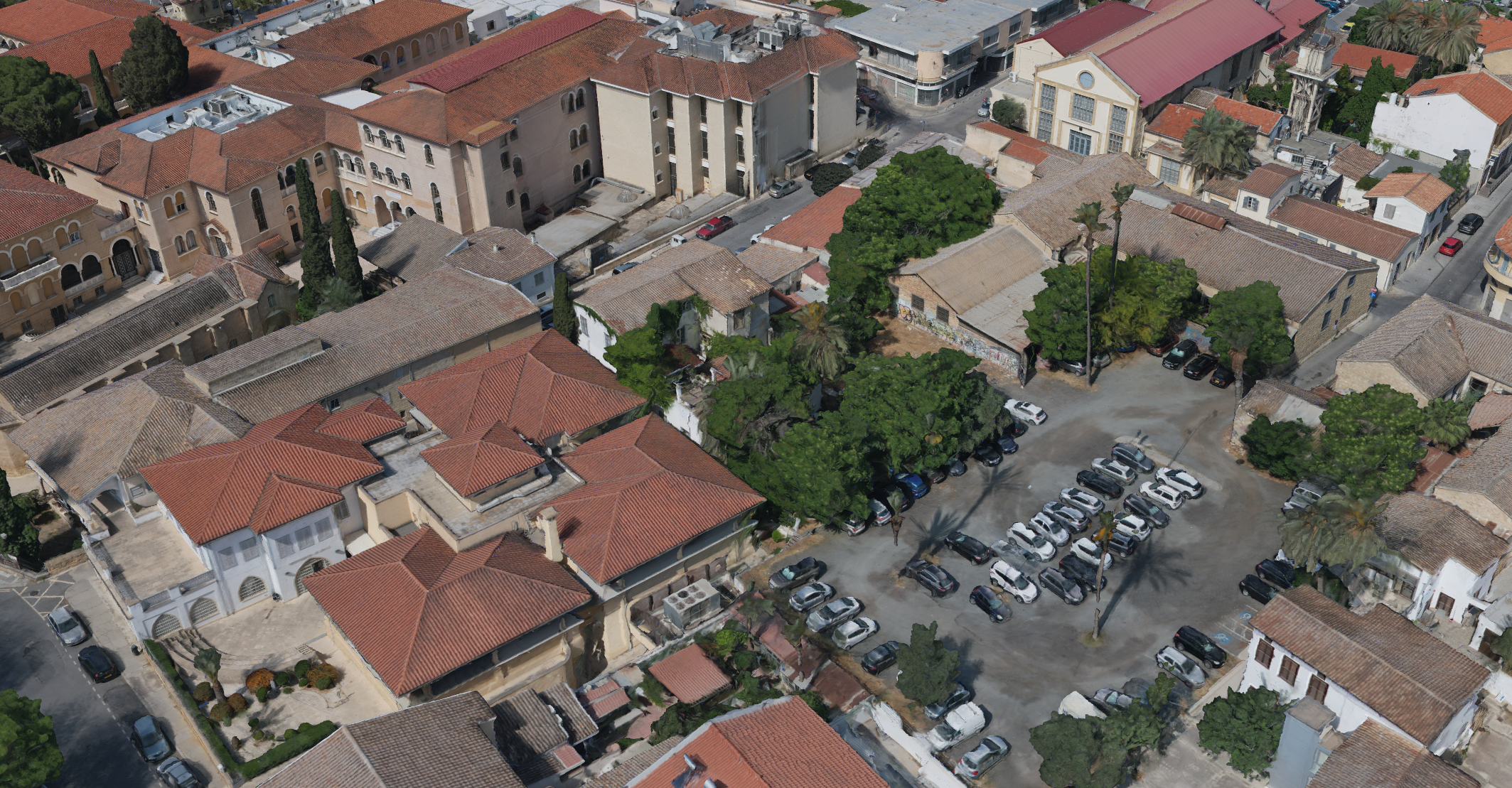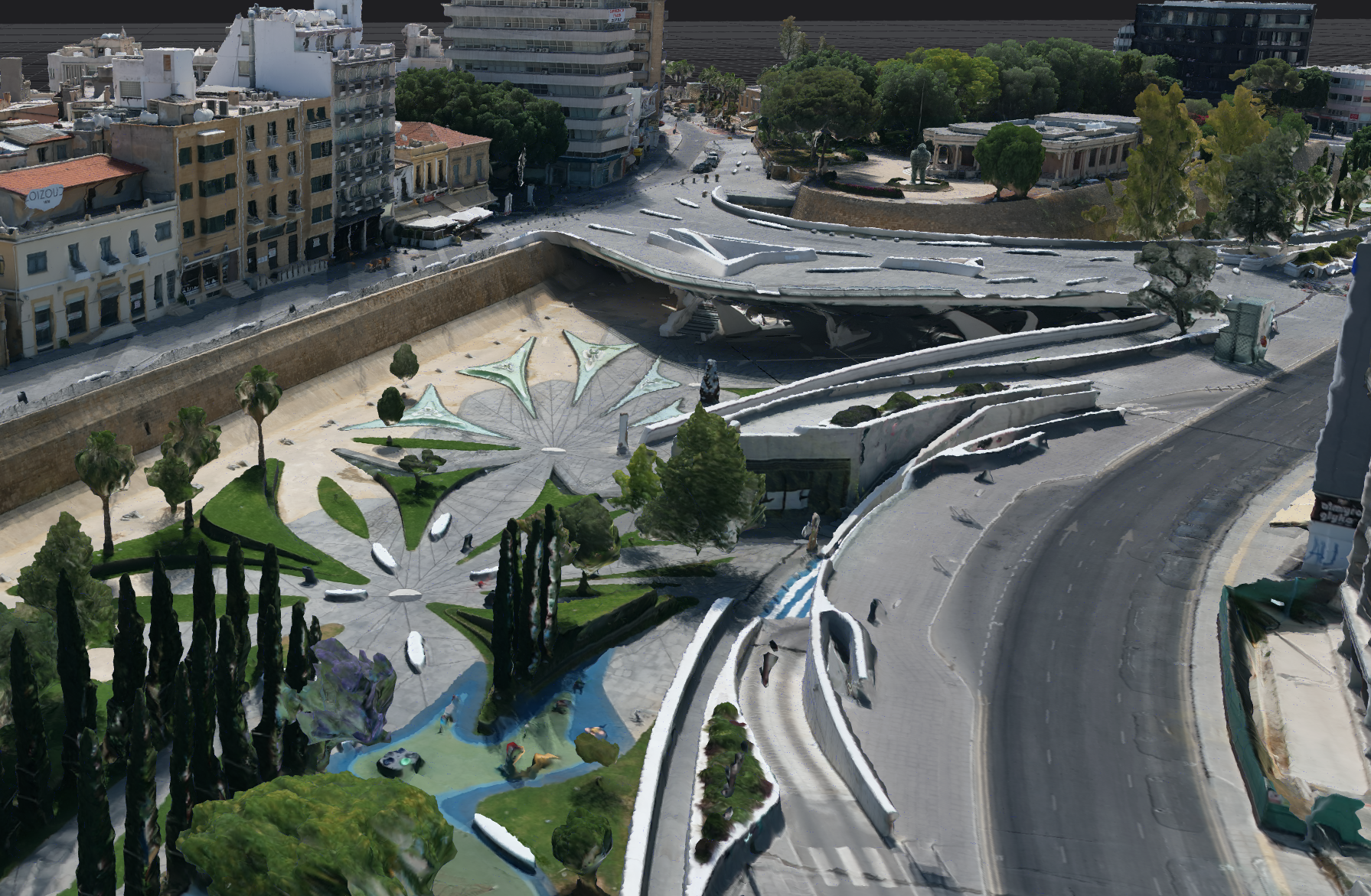A simulation of old Nicosia could help speed up evacuation processes in the future
The Iranian bombs targeting Tel Aviv visible from the island in June, then the devastating wildfires in July. Then came international media reports on Turkey allegedly planning to more than double its military presence in the north, all while President Nikos Christodoulides announced that the national guard was “stronger than ever” – 2025 was an eventful year for Cyprus in terms of security on all levels.
Whether you live or have been visiting Cyprus within the last few months – concerns about security could well have struck your mind a bit more in recent months.
Catastrophising, however, is rarely a constructive response to anything, thus it is worth taking a closer look at how Cyprus is dealing with, or planning for, current and future security threats, partly with technological solutions crafted on the island.
A UCY evacuation simulation for old Nicosia
After the Limassol wildfires, in which four villages were fully evacuated, the handling of the measures was broadly discussed publicly. Claims of confusion and delays in the evacuation of isolated homes and livestock farms were at the centre of media reports.
Specifically, questions regarding the failure to activate the pre-existing early-warning system arose, with authorities facing severe criticism of mishandling the situation.
Now, what can be done better in the future? Innovative tech solutions could be part of the answer, minimising human failure and optimising workflows – at least in theory. And in fact, some of these solutions are made in Cyprus.
“The old town of Nicosia is a very special case, it has a military buffer zone, so people cannot move in that way, then there are mediaeval walls surrounding the city and there are only six exit points,” says Andreas Aristidou, professor at UCY’s computer science department.
Aristidou, together with his two undergraduate students Marios Stylianou and Marios Demetriou, is currently working on an evacuation simulator, focusing on Nicosia’s walled old city.
“Nicosia has a lot of narrow or one-way streets that may create some blockages in case of an emergency evacuation,” Aristidou says.
And while this is true for many historical urban centres, the case of our beloved, yet divided capital seems to be a bit of a special case.
“The idea is to be prepared and give the tools to the authorities to study different scenarios,” he adds.
Gaming technology for risk prevention

The simulator is based on a game engine for creating interactive applications. Utilising a 3D model of the capital, created by the research centre Cyens, as well as data from open street maps and Google, it gives a close-to-accurate virtual mirror of the capital.
Based on this data, the simulator can calculate how many vehicles could pass through the streets downtown and be configured for different scenarios or disasters. It has so far been designed for Nicosia, however, it could be implemented in other parts of the island in the future, provided there is sufficient data.
“A system needs to prioritise areas that are more sensitive to disasters, for example some areas in the countryside so we need to focus on this and then move further,” Aristidou says.
While rural areas might not yet be able to provide such data, the three explain that cameras monitoring entrances and exits to a specific area, for example, could help provide valuable information to make the tool more precise.
A matter of data and cooperation
Exchange with the municipalities is a key element in this context, Aristidou emphasises. However, cooperation with the north would also be beneficial, as there is currently no 3D model of the northern part of the capital.
“We, for obvious reasons, cannot run drones there on our own, therefore we would need the colleagues to do the same work as us, so we can then exchange knowledge,” he explains.
To end this overview on a more positive note: Cyprus currently ranks 13th in the global finance magazine world safety ranking, listing 134 countries – down 21 ranks from six in 2019. Additionally the island currently ranks ‘medium peace’, at rank 88 in the global peace ranking.
The input of the researchers was shared as part of the international risk and security conference 2025 , focusing on disaster risk reduction, resilience building, and emergency preparedness, held at the Cyens research centre in Nicosia in October.






Click here to change your cookie preferences